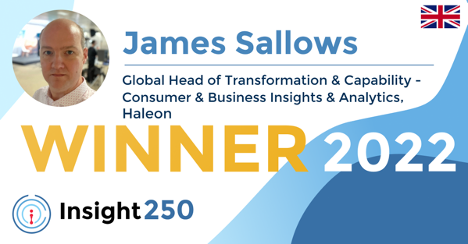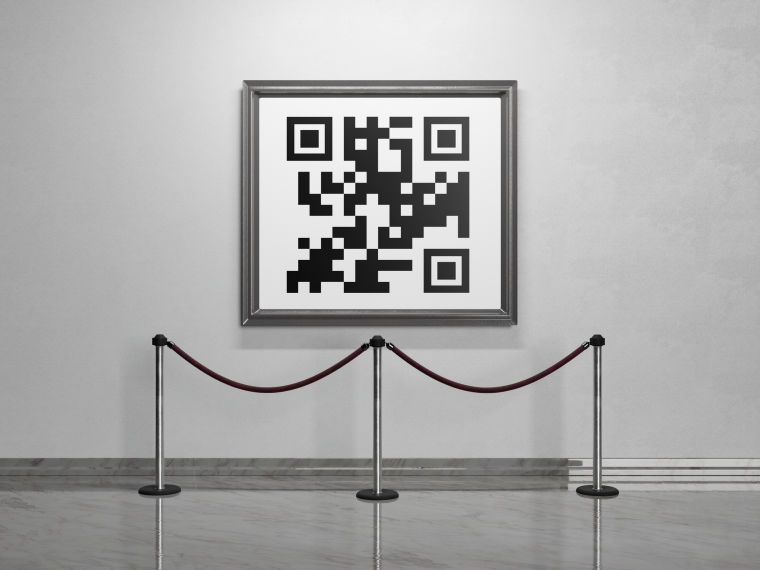Designing and developing an insights-led culture
While the importance of insights as a central point is becoming increasingly critical to organisations, many leading brands are going one step further.

The Insight250 spotlights and celebrates 250 of the world’s premier leaders and innovators in market research, consumer insights, and data-driven marketing. The inaugural list was revealed in April 2021 (and the latest 2022 winners were announced in September at ESOMAR Congress in Toronto), creating renewed excitement across the industry whilst strengthening the connectivity of the market research community.
With so many exceptional professionals named to the Insight250, it seems fitting to tap into their expertise and unique perspectives across various topics. This weekly series does just that; inquiring about the expert perspectives of many of these individuals in a series of short topical features.
While the importance of insights as a central point is becoming increasingly critical to organisations, many leading brands are going one step further. These companies are designing and developing their cultures around insights in order to stress the vital nature of understanding markets, products, competitors, and above all else, customers. I sat down with James Sallows, Global Head of Transformation & Capability, Consumer & Business Insights & Analytics (CBIA), at Haleon to discuss this cultural evolution many organisations are embracing.
James, how do you think we get insights at the top table as a strategic partner, growth catalyst, and empathy driver?
“This question is always a bit of a chicken and egg scenario as you need credibility and a strong track record to be at the top table, but at the same time, you can’t build those things easily unless you have that level of partnership and exposure. In our case, this has been something built over the past four years, where we have been relentlessly chipping away at every opportunity to influence, embed, lead and show value to the business. We have treated this as building an internal (and external) brand for our CBIA team over this period.”
James Sallows
James, we often talk about an insights-led culture, but what does that really mean?
“To me, this is about a mindset that prevails across the business, where there is an understanding and acceptance that ‘data’ is not enough and that there is always value in understanding the ‘why’ of things. It also requires the most precious of things, time…as you cannot always have immediate access to insights in the same way you can have access to a stream of data. This is fundamentally about valuing the people AND the data, not one or the other.”
James Sallows
How do you develop an insights-led culture?
“I strongly believe you need a clear commitment to this and that it cannot be a hobby alongside the day job for already-stretched insights people. A clear insights strategy, a functional from-to, and a focus on internal brand-building for the function are the key pillars. The mindset of many people in insights is that the ‘work talks for itself,’ but the reality is that we need to be much better at demonstrating our impact and value. We also need to seek ways in which insight becomes an essential step in the process for other teams’ work (e.g., our new Creative Briefing template or our new Front End Innovation process) and that its value is clearly demonstrated.”
James Sallows
What are the pitfalls to watch out for?
“I think the biggest danger is trying to do too much, too fast. For example, embedding Insight in the business first requires everyone to understand what insight really is (and isn’t), and this should not be glossed over or sped through, as it really is learning for many people. We are in year 3 of our plan, and it's now starting to really show impact as the different streams (insights, storytelling, creative thinking, innovation, behavioural science, marketing effectiveness…) link together, and value is created.”
James Sallows
What role does “Deeper Human Understanding” play in successful transformation?
“Deeper Human Understanding is a rallying cry that the entire business can get around – it’s a set of behaviours and capabilities that are relevant in any role. This means that the world of insights can transcend its perceived complexity and specialist nature and be open to all. Given this, it becomes a real accelerator for insights transformation as it creates links into work across the business. We have just launched an industry-first mini-MBA in Deep Human Understanding (in partnership with UCL) that is designed to increase the foundational understanding of the value of insights and analytics to business growth.”
James Sallows
To get insights heard at the top table, what skills do today’s researchers need, and how can we develop those?
“There is a need to accelerate the general business understanding and business acumen of insights teams. The promise that our work will drive business impact needs to also work in the other direction, where an understanding of business dynamics drives our thinking too.”
James Sallows
TOP TIP
“My top tip would be to be more vocal about your achievements in insights. We are often overshadowed by the ‘end users’ of work, but we need to talk more about our own value and accomplishments beyond an insights-only audience. We don’t get to the top table by magic, or other people pushing us there, it is on all of us to contribute to this mission and continuously demonstrate value and impact.”
James Sallows
Thank you, James. As James stresses, the shift to an insights-driven culture is largely rooted in a mindset that must prevail across the business. As he points out, data cannot be enough; rather, the culture must focus on understanding “the why of things.” Beyond this, the evolution must be driven by both technology and people by placing an inherent value on both congruent elements to drive the success of the culture.
Thank you for taking the time to discuss this important topic, James.
 James Sallows is the Global Head of Transformation & Capability for Consumer & Business Insights & Analytics for Haleon. He has over 20 years of experience in media and market research across multiple methodologies and verticals. Previously he held operation and business development roles with Ipsos, Kantar, and Harris Interactive.
James Sallows is the Global Head of Transformation & Capability for Consumer & Business Insights & Analytics for Haleon. He has over 20 years of experience in media and market research across multiple methodologies and verticals. Previously he held operation and business development roles with Ipsos, Kantar, and Harris Interactive.
Crispin Beale
Chairman at QuMind, CEO at Insight250, Senior Strategic Advisor at mTab, CEO at IDXCrispin Beale is a marketing, data and customer experience expert. Crispin spent over a decade on the Executive Management Board of Chime Communications as Group CEO of leading brands such as Opinion Leader, Brand Democracy, Facts International and Watermelon. Prior to this Crispin held senior marketing and insight roles at BT, Royal Mail Group and Dixons. Crispin originally qualified as a chartered accountant and moved into management consultancy with Coopers & Lybrand (PwC). Crispin has been a Board Director (and Chairman) of the MRS for nearly 20 years and UK ESOMAR Representative for c15 years. As well as being CEO of Insight250, Crispin is currently Worldwide CEO of Digital Communications Solution Agency, IDX. Crispin is also the Senior Strategic Advisor at mTab and the Chairman of QuMind and spent 4 years as Group President of Behaviorally where he was responsibile for the client & commercial teams globally. Crispin is a passionate advocate for blending human intelligence and technology to deliver innovation and leadership across organisations.

